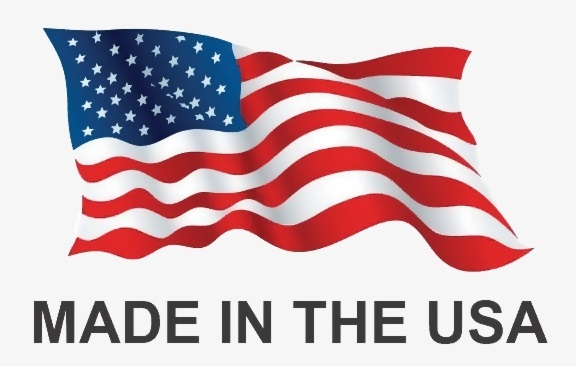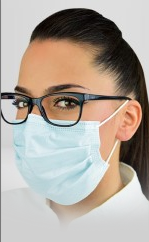 |
Lion's Dental Supply & Equipment
|
|
|
|
|
 |
|
|
|
|
Sure Seal Elite ASTM Level 3 Fog Free Dual Chin And Nose Piece 4 ply Medical Ear-Loop Face Masks |
|
|
New SureSeal Elite 4 Layer, 4 fold, Fog Free with foam strip, Dual Fit Nose & Chin Band for a Strong Tight Fit
SureSeal Face Mask with Dual Nose & Chin Piece
It is 100% latex-free and fiberglass free. All materials are
non-irritant, odorless and Hypoallergenic. Ear-loop. Compare to Cranberry Carbon Black Face Masks, and ValuMax Double Seal ArchAway
ASTM Level 3 protection with high fluid resistance. Greater than 99% BFE/PFE at 0.1 micron and >99% Particle Filtration Efficiency (PFE). 4-Fold design provides greater comfort with 15% more breathing volume. Nose and chin adjustment Alumium strips for custom fit and protection.
• 4-ply,4-folder comfortable design. 4 Layers Provide even more Protection.
• 160mmHg. 99% BFE/PFE at 0.1 micron and >99% Particle Filtration Efficiency (PFE)
• Fluid resistant spunbond polypropylene outer layer
• Meltblown filtration middle layer
• Fluid resistant PPF as third layer can provide additional
protection and breathability.
• Silk-like, ultra-soft cellulosic white inner layer
• Fog Free Foam Strip Won't Fog Up your Glasses. Ensures a Tight Fit.
• 100% latex, fiberglass free hypoallergenic material
• Full length Alumium nose & Chin piece that hold Stroger than the competition.
• 2 colors available: Blue and Black. More Colors Coming Soon
Trust Sure Seal Surgical Face Masks to help protect you in the fight against infectious diseases, including COVID-19
SureSeal Disposable Face Masks have been tested by the 3rd Party Medical Device Labs. Nelson Labs is a laboratory accredited to assess "Masks, Gloves, Medical Protective Clothing and Other Personal Protective Equipment." These test reports from these labs are also accepted by the US FDA.
these test results include over 99% bacterial filtration efficiency and meet the EN14683 Type IIR EU Standard requirements. Sure Seal Surgical Face Masks are Now Made In The USA. 
Brand: Sure Seal Elite
Color: Royal Blue, Midnight Black, Moss Green, Hot Pink
Composition/Ingredients: Hypoallergenic
Fluid Resistant: ASTM Level 3
Item Type: Earloop
Quantity: 50/Box
Special: Fog Free Foam Strip, 4 Layer , 4 Fold, Metal Chin Piece
Bacterial Filtration Efficiency: >99.7
Particulate Filtration Efficiency: >99.6
Flame Spread: Class 1
Differential Pressure: >5.0
Meets ASTM Level 3 standard, 160 mmHg
Packaging: Since the Corona Virus They are now Packed in a Plastic Bag, And then in a Nice Large Unique Distinguished Satin Bag Inside the Box to prevent Cross Contamination
Reg $ 59.99 $ 17.99
Sold Out Please See Substitute
|
New SureSeal Elite 4 Layer, 4 fold, Fog Free with foam strip, Dual Fit Nose & Chin Band.
|
Choosing the Right Face Mask
When was the last time you were struck in the face by blood or other bodily fluids during surgery? Studies1 show such incidents occur to OR staff, on average, between 45% and 51% of the time, and that’s an excellent reason to be sure you’re wearing a face mask that provides the protection you need.
But with all the options available, knowing how to select the mask that will give you the right level of protection for the task at hand can be confusing.
Fortunately, that process has been made as easy as 1-2-3 with ASTM ratings.
What is ASTM?
ASTM International is a global organization that develops and publishes technical standards for an expansive array of products, materials, systems and services. Today, more than 12,800 ASTM standards are in use around the world, including ASTM F2100-11, the standard for medical face masks since 2012.
Where does the Easy as 1 – 2 – 3 come in?
In developing ASTM F2100-11, the organization tested material used to make medical face masks on five performance metrics. Based on their test scores, ASTM assigns a numerical rating for the barrier performance of the material:
Level 1 - for low risk of fluid exposure
Level 2 - for moderate risk of fluid exposure
Level 3 - for high risk of fluid exposure
So, how will I know how each mask is rated?
Simply look for ASTM Level 1, 2, or 3 on the face mask package. However, not all face masks are ASTM-rated, so it’s important to check before you choose. It’s worth the effort to find face masks that DO carry the ASTM rating, to be sure you’re getting the proper level of protection.
Tell me more about how masks are tested
The five performance metrics and their related tests are:
Fluid Resistance – Test ASTM F1862
This test evaluates the resistance of a medical face mask to penetration by a small volume (~2 mL) of synthetic blood at a high velocity (80 mmHg, 120 mmHg, or 160 mmHg). The mask either passes or fails based on visual evidence of synthetic blood penetration.
Breathability – Test MIL-M-36954 C: ΔP
This test determines the face mask’s resistance to airflow. A controlled flow of air is driven through the mask, and the pressure before and after is measured. The difference in pressure is divided by the surface (in cm2) of the sample. A lower breathing resistance indicates a better comfort level for the user.
Bacterial Filtration (BFE) – Test ASTM F2101
This test measures the percentage of bacteria larger than 3 microns filtered out by the mask. The challenge material used is Staphylococcus aureus.
Particulate Filtration (PFE) – Test ASTM F2299
This test measures the percentage of particles larger than 1 micron filtered out by the mask. The challenge material used consists of latex aerosol concentrations in a controlled airflow chamber.
Flammability – Test 16 CFR Part 1610: Flame Spread
This test exposes the face mask material to a flame and measures the time required for the flame to proceed up the material a distance of 127 mm (5 inches). Class 1 means the material exhibits normal flammability and is acceptable for use in clothing. |
Surgical Face Masks
A surgical mask is a loose-fitting, disposable device that creates a physical barrier between the mouth and nose of the wearer and potential contaminants in the immediate environment. Surgical masks are regulated under 21 CFR 878.4040. Surgical masks are not to be shared and may be labeled as surgical, isolation, dental, or medical procedure masks. They may come with or without a face shield. These are often referred to as face masks, although not all face masks are regulated as surgical masks.
Surgical masks are made in different thicknesses and with different ability to protect you from contact with liquids. These properties may also affect how easily you can breathe through the face mask and how well the surgical mask protects you.
If worn properly, a surgical mask is meant to help block large-particle droplets, splashes, sprays, or splatter that may contain germs (viruses and bacteria), keeping it from reaching your mouth and nose. Surgical masks may also help reduce exposure of your saliva and respiratory secretions to others.
While a surgical mask may be effective in blocking splashes and large-particle droplets, a face mask, by design, does not filter or block very small particles in the air that may be transmitted by coughs, sneezes, or certain medical procedures. Surgical masks also do not provide complete protection from germs and other contaminants because of the loose fit between the surface of the face mask and your face.
Surgical masks are not intended to be used more than once. If your mask is damaged or soiled, or if breathing through the mask becomes difficult, you should remove the face mask, discard it safely, and replace it with a new one. To safely discard your mask, place it in a plastic bag and put it in the trash. Wash your hands after handling the used mask. |
What is the Difference from the Face Masks At the store ?
Face Masks you see out at the store are not tested to provide any fluid resistance or Bacterial Filtration Efficiency (BFE). So what you get is a Dust Face Mask. Not a Medical Tested face Mask.
Medical or Surgical Face masks describe that the face masks is intended for medical use. But a lot of stores and new Suppliers of Face Masks use the terms also. Not knowing what they are doing. they dont even know the difference from the medical Face Masks and the ones they are selling.
Medical Face Masks Should have a BFE Stated percentage that they were shown to be tested at. the Amount of Bacterial Filtration that the mask is rated at. Most medical start at 95% BFE.
Also most Medical Face Masks have a fluid resistance rated scale that they are assigned to, Called ASTM Level.
Levels 1 threw 3 . The Higher the Fluid Resistance the Better the mask is at holding up if it gets wet from liquid or blood.
ASTM Level 3 is the highest fluid resistance you can get in a medical mask.
If you want true protection you need to order Medical/ Surgical face Masks from a medical or dental supplier. Not your local grocery store. |
Copyright © 2013 Web Design by Web.com Group, Inc. |
|
|
 |
 |
|
 |
|

